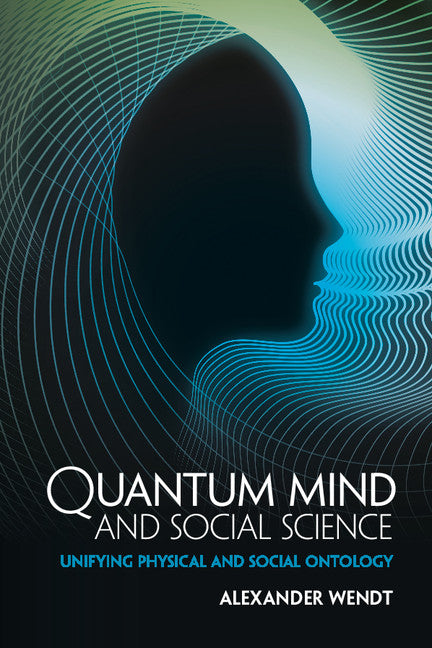Freshly Printed - allow 8 days lead
Couldn't load pickup availability
Quantum Mind and Social Science
Unifying Physical and Social Ontology
A unique contribution to the understanding of social science, showing the implications of quantum physics for the nature of human society.
Alexander Wendt (Author)
9781107442924, Cambridge University Press
Paperback / softback, published 20 April 2015
366 pages
22.9 x 15.2 x 1.9 cm, 0.52 kg
'This book is very well written and engaging and introduces some very controversial new ideas. The author takes a courageous stance on a number of deep and difficult issues in philosophy of mind. Some of these ideas may ultimately not be supported, and some others may engage never-ending debates. But if even one of them turns out to be right, then the book will have made a great contribution.' Jerome R. Busemeyer, Provost Professor in the Department of Psychological and Brain Sciences, Indiana University, Bloomington
There is an underlying assumption in the social sciences that consciousness and social life are ultimately classical physical/material phenomena. In this ground-breaking book, Alexander Wendt challenges this assumption by proposing that consciousness is, in fact, a macroscopic quantum mechanical phenomenon. In the first half of the book, Wendt justifies the insertion of quantum theory into social scientific debates, introduces social scientists to quantum theory and the philosophical controversy about its interpretation, and then defends the quantum consciousness hypothesis against the orthodox, classical approach to the mind-body problem. In the second half, he develops the implications of this metaphysical perspective for the nature of language and the agent-structure problem in social ontology. Wendt's argument is a revolutionary development which raises fundamental questions about the nature of social life and the work of those who study it.
1. Preface to a quantum social science
Part I. Quantum Theory and its Interpretation: 2. Three experiments
3. Six challenges
4. Five interpretations
Part II. Quantum Consciousness and Life: 5. Quantum brain theory
6. Panpsychism and neutral monism
7. A quantum vitalism
Part III. A Quantum Model of Man: 8. Quantum cognition and rational choice
9. Agency and quantum will
10. Non-local experience in time
Part IV. Language, Light, and Other Minds: 11. Quantum semantics and meaning holism
12. Direct perception and other minds
Part V. The Agent-Structure Problem Redux: 13. An emergent, holistic, but flat ontology
14. Toward a quantum vitalist sociology
Conclusion.
Subject Areas: Quantum & theoretical chemistry [PNRP], Philosophy of science [PDA], Cognition & cognitive psychology [JMR], Crime & criminology [JKV], Sociology [JHB]


